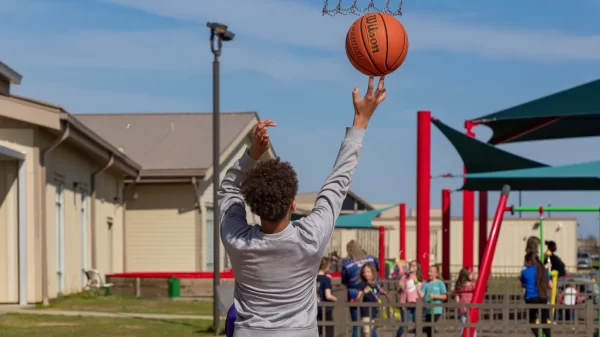The Poarch Band of Creek Indians dropped their new gaming proposal on Monday — a plan that would allegedly bring in more than a billion dollars for the state in the first year — and it’s not a terrible plan.
But Alabama lawmakers would be fools to go for it.
First and foremost, PCI should be commended for putting together a real proposal and dropping it publicly so everyone can discuss it. That sort of openness has been sorely missing in a process that too often plays out behind closed State House doors, with whispers and rumors running rampant.
The Poarch Creeks have ended that bunch of nonsense by putting their cards on the table. Hopefully, the resulting conversations and debates will play out just as publicly. That’s the only hope the Alabama public has of a truly fair deal.
That said, this initial offer from PCI isn’t really a fair deal for the people of Alabama.
PCI wants gaming exclusivity and more locations in Alabama, and in exchange it is willing to pay — at least on paper — a hefty fee to get it. The tribe is offering up to 25 percent of all new Class III gaming — that’s table games and traditional slots — and they will pay $225 million up front to get it.
They also want two additional locations (and I know from conversations previously they want those locations to be northeast Alabama and Birmingham), Class III gaming at their three current casinos and they want any lottery to be limited to a traditional, paper-only game.
They estimate that such a setup will bring in more than a billion dollars in the first year and then roughly $375 million per year after that.
That sounds not so bad … until you start breaking down a few key facts.
First and foremost, you could have all of this without providing the Poarch Creeks with exclusivity and without placing limits on a lottery — which is far and away your biggest money-maker in the world of gaming. Expanding lottery offerings to include electronic games and video lottery terminals would bring in upwards of $450 million annually all by themselves.
Additionally, exclusivity is never a great deal. The elimination of competition results in one entity becoming too powerful and buying off politicians in order to skirt rules.
If you need an example of this, simply take a look at the current Alabama Legislature.
You give any entity an exclusive right to gaming in this state and within two years that entity will own every lawmaker elected. You know it and I know it. Let’s not pretend otherwise.
On top of that, I’m skeptical of the 25-percent figure that the Poarch Creeks base their math on. And I’m skeptical because that’s a huge number, given the rates normally approved by the Interior Department.
All negotiations for this deal would ultimately have to be approved by the feds, and the most recent profit shares between states and tribes have been in the 10-percent range. Maybe they would be willing to approve 25 percent, but that seems way high.
But forget all of that. Here’s the biggest reason why Alabama lawmakers should look for a better deal: The Poarch Creeks have to negotiate with you.
Now, don’t get me wrong, I’m not advocating to screw over the tribe. That’s happened enough in the past.
But I am saying that the state should use its position of power in these negotiations to make sure it squeezes every dime it can out of gaming. To do that, our lawmakers need to understand the rules and their position.
In order to operate Class III games at its casinos, PCI must enter into a compact with the state. Doesn’t matter if Alabama approves full casino gambling at 100 different locations, the tribe still has to come to the table and negotiate a deal before it can offer the same games.
And believe me, they will come to the table. Because the electronic bingo they currently offer doesn’t compare to regular casino games.
That means the state can approve a lottery with all of the bells and whistles, sell off two or three more gaming licenses to other entities — whether that be outsiders or the current dog track owners — and still bring PCI to the table to negotiate an agreement for their casinos.
That’s how Alabama makes the most amount of money possible.
Implement an education lottery with electronic options. Allow the state’s four dog tracks to operate casino games and sportsbooks — but only if those locations promise a minimum investment for the creation of destination resorts. Offer one or two additional locations in north Alabama for sale to the highest bidder(s). Enter into a compact with the Poarch Creek Indians.
That’s not unfair to anyone. And it protects the jobs and tax base of a couple of very poor counties.
But most importantly, it maximizes what the state can take in from the gaming that will exist here. And if you’re going to have gambling, you better get all the cash you can from it.























































